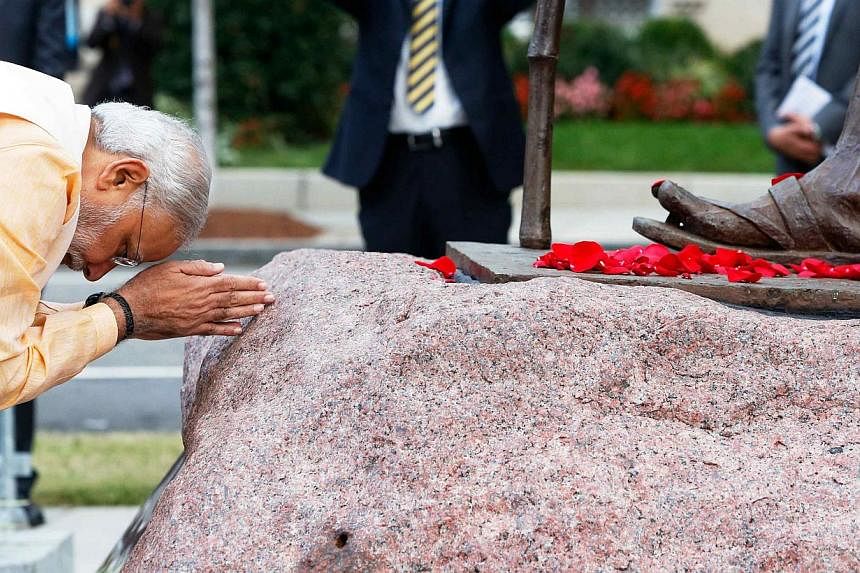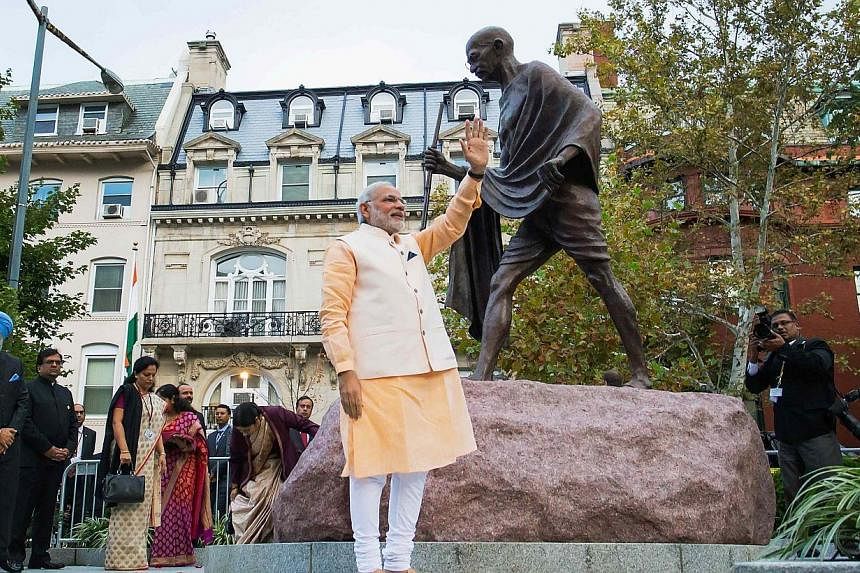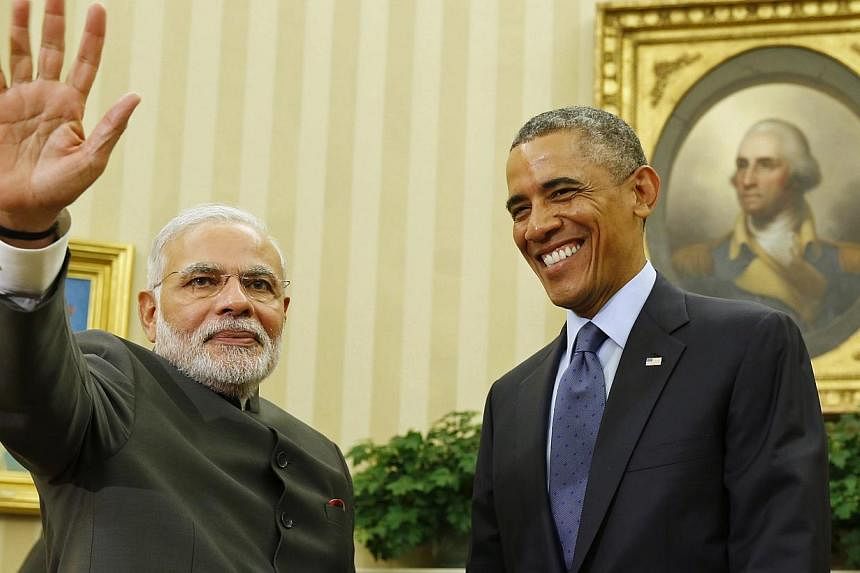WASHINGTON (AFP) - US President Barack Obama on Tuesday hailed the "energy" and "determination" of Indian Prime Minister Narendra Modi, flexing the symbolism of his office to court the affections of the new Indian government.
Mr Modi meanwhile told Mr Obama that he hoped for an agreement "soon" to free up a major global trade facilitation agreement, blocked by the government in New Delhi over concerns its food subsidies to the poor could face legal challenges.
The United States sees its relationship with India as crucial to Mr Obama's strategy of rebalancing US diplomatic weight towards Asia and believes that the world's oldest democracy, and its largest, are natural partners.
Yet several spats have disrupted ties in recent months and there have been doubts expressed over whether Mr Modi shares Washington's hopes for the relationship.
Mr Modi and Mr Obama first met at a private dinner for their delegations in the ornate Blue Room of the White House late on Monday, after the Indian leader arrived in Washington fresh from a triumphant welcome from the Indian diaspora in New York.
White House chefs served up crisp halibut in ginger carrot sauce, though Mr Modi had given advance notice he would not eat as he is in the middle of an annual religious fast.
On Tuesday, Mr Modi rode in a black sports utility vehicle, with US and Indian flags flying from the fenders, up to the West Wing of the White House through a US military colour guard.
Mr Modi's warm welcome struck a sharp contrast to his previous treatment by Washington, which refused him a visa in 2005 on human rights grounds over anti-Muslim riots in his home state of Gujarat.
Mr Modi denies wrongdoing and was never charged over the violence that killed more than 1,000 people.
Both sides used his debut visit as Indian leader to stress togetherness and common goals: Mr Obama and Mr Modi wrote a joint article for the Washington Post on Tuesday and traveled together after their talks to pay homage at a memorial to civil rights leader Martin Luther King in Washington.
Mr Obama told reporters he was impressed with the "energy and determination" Mr Modi has shown in tackling India's challenges and opportunities since he took office in May.
"It is critical for us to continue to deepen and broaden the existing framework of partnership and friendship that already exists," Mr Obama said.
Mr Modi struck a more cosmic note - noting that space probes from the United States and India had both recently reached Mars.
"After the US-India summit on Mars, we are meeting here on earth.
"This happy coincidence captures the potential of our relationship." Mr Modi also revealed that he and Mr Obama had a "candid" discussion on the Trade Facilitation Agreement (TFA).
"India supports trade facilitation. However, I also expect that we are able to find a solution that takes care of our concern on food security," Mr Modi said.
"I believe that it should be possible to do that soon," said Mr Modi, who later went on to meet Secretary of State John Kerry and leaders in Congress.
Stockpiling and subsidies for the poor are considered trade-distorting under existing WTO rules.
All 160 WTO members including India agreed to implement the TFA - which would mark the first big global trade liberalisation deal in two decades in 2013. India's move to hold up the deal in July surprised fellow WTO members.
Mr Obama said that he and Mr Modi also had in-depth talks on economics and the Indian leader's promise to pull more of his country's people out of poverty.
They also swapped views on the struggle against the Islamic State group in Iraq and Syria and the Ebola crisis in Africa.
Mr Obama noted they also spoke about the need for "maritime" rules to be observed - an apparent reference to China's territorial disputes with a host of Asian nations.
Washington sees India as a key potential balance to rising Chinese power in Asia.
Mr Modi has already traveled to Japan and hosted talks with Chinese President Xi Jinping since capturing power in a landslide for his Bharatiya Janata Party in general elections in May.
Both sides are eager to repair the damage inflicted by a recent series of spats, including a crisis last December when US authorities arrested and then strip-searched an Indian diplomat in New York for allegedly mistreating her housekeeper.
US officials insisted that a lawsuit leveled against Mr Modi by a human rights group in New York over the Gujarat massacre would not detract from the visit. As a foreign head of government, Mr Modi enjoys diplomatic immunity.
After the talks, the two sides issued a long joint statement, citing a broad range of cooperation and joint projects in national security, science, economics, high technology, investment and diplomacy.






